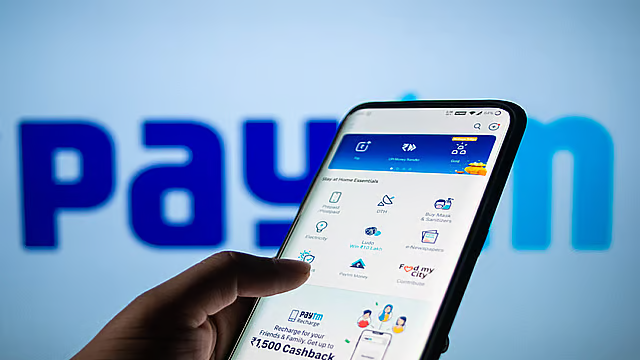Starting in March 2024, the Reserve Bank of India will not allow Paytm Payments Bank to provide any more banking services. The reason for this move is because there are worries that the bank is not appropriately adhering to regulatory requirements.
The RBI stated after conducting an in-depth audit, they discovered recurring problems with compliance and serious concerns about the supervision of the bank. More regulations are now required as a result of this.
The RBI had previously instructed Paytm Payments Bank to stop taking on new clients in March 2022 and to engage an IT audit company to conduct a comprehensive system assessment.
Paytm Payments Bank will not be able to take deposits or process credit transactions after February 29, 2024. This covers actions such as making deposits into client accounts, wallets, prepaid cards, FASTags, and NCMCs (National Common Mobility Cards).
However, you can still add interest, cashbacks, or refunds whenever you choose. The organization must also permit users to access and withdraw their balances without restriction. This includes funds from their savings and current bank accounts, prepaid instruments, FASTags, and NCMC, with no limitations, up to the available balance.
After February 29, 2024, the bank should only offer fund transfers, withdrawals, and usage of balances. No other banking services, BBPOU (Bharat BillPay Operating Units), and UPI facilities should be provided, as per the central bank’s instructions.
Furthermore, the main accounts of the parent company One97 Communications and Paytm Payments Services must be closed by February 29, 2024. Any ongoing transactions and account settlements related to transactions initiated before February 29, 2024, must be completed by March 15, 2024. After this date, no further transactions will be allowed.

Changes in Banking Operations for Paytm:
Paytm Payments Bank is facing challenges as per the recent regulations. Normally, payments banks are allowed to take deposits but cannot give loans unless they partner with another regulated lender. Additionally, they can issue debit cards, but not credit cards unless under a co-branded or co-lending arrangement with a partner bank or NBFC.
Originally, One97 Communications, the parent company, held the prepaid payments instruments (PPI) license, which was later transferred to Paytm Payments Bank when it started operations in May 2017. However, the bank is still awaiting final approval for the payments aggregator (PA) license.
The new restrictions essentially mean a halt to banking operations unless the entity transfers its payment services through another bank. This may make it challenging for Paytm to conduct various payment-related transactions beyond the payments bank, according to industry experts.
Bernstein Research noted, “For all practical purposes, the above notifications end the operations of Paytm Payments Bank. This is a definite negative development and adds to the already heavy regulatory overhang on the business.”
While there might not be an immediate impact on the UPI payment business, which constitutes 70% of the GMV (gross merchandise value), there are potential risks to payments margin, especially for higher-margin products like wallets and FasTag, which depend on the payments bank.
Jefferies pointed out that this could also affect the lending business, which contributes to 20% of revenue, if lending partners limit business due to operational and governance risks. Wallet GMV (5% of total) may need to be wound down; merchants using Paytm Bank (6% of devices) may be impacted; and FasTag GMV will be significantly affected. These factors pose potential risks to earnings and valuations.
After the RBI sanctions, several customers expressed concerns on microblogging websites about their wallet balances, fixed and savings deposits, and the ability to use Paytm for UPI transactions.
Latest Blog: Regulatory Action: RBI Restricts Paytm Payments Bank’s Services Starting March 2024

1 thought on “Regulatory Action: RBI Restricts Paytm Payments Bank Services Starting March 2024”